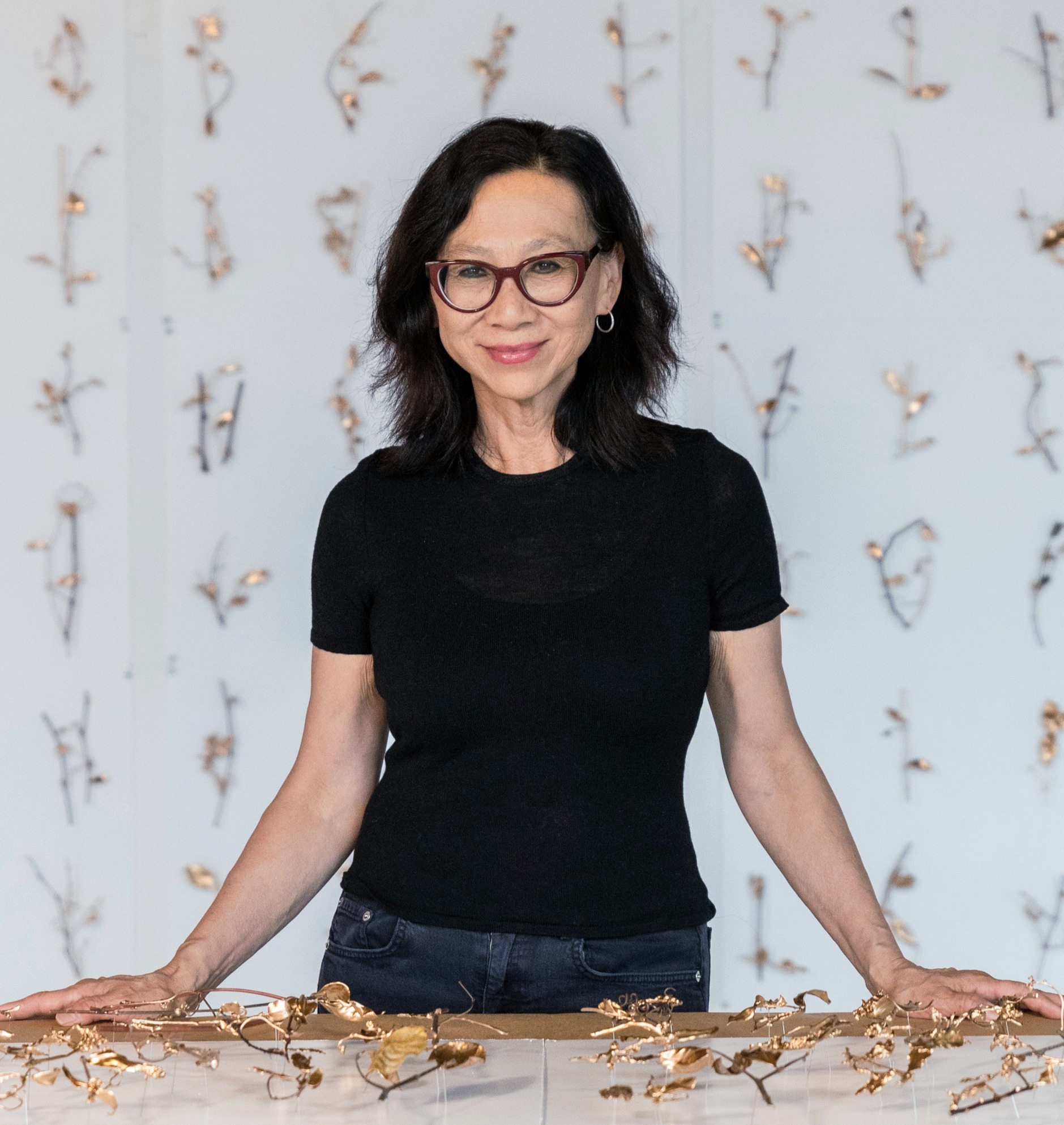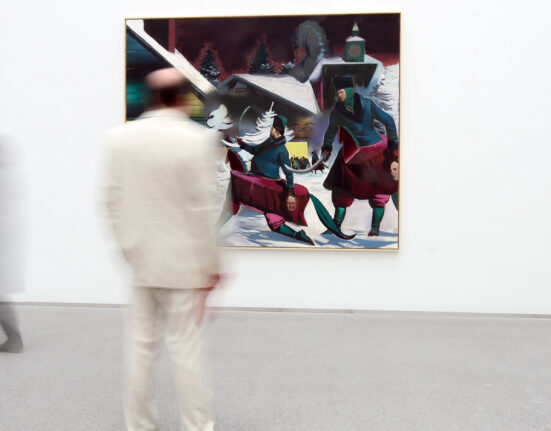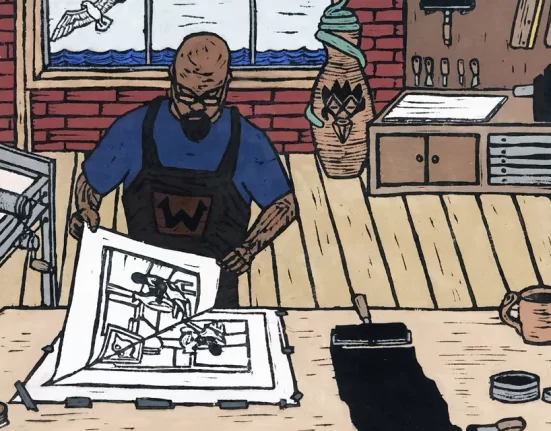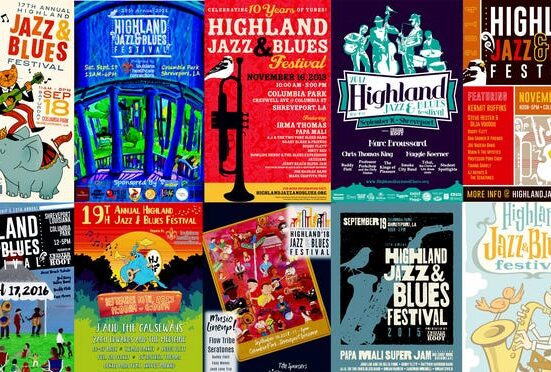On March 21, Yu-Wen Wu, an interdisciplinary artist based in Boston, spoke with Sarah Laursen, the Harvard Art Museums’ Alan J. Dworsky Associate Curator of Chinese Art, to engage in a conversation about Wu’s multi-faceted art. The audience was invited to explore an engaging, slide show map of Wu’s art throughout the Boston area; audience members were taken on a journey which included Harvard Business School, Tufts University’s campus, Aunty Kay and Uncle Frank Cin Park, and Boston’s Institute of Contemporary Art.
One of Wu’s earliest contributions to Boston’s public art scene can be found at the Business School, where she installed a large metal wall sculpture modeled after a Song Dynasty landscape entitled “Terrain” in 2016. While metalwork is only one of the mediums that Wu works with, the piece exemplifies the fusion of Eastern and Western influences that is prolific in all of her art. The audience was also given delicate insights into the piece, such as the hidden sailboat acknowledging the chaos and fortune of the shipping industry of the time.
The presentation created an artist-led journey through Wu’s holistic approach to her art, focusing on the ways in which her personal background informs her work. In college, Wu had assisted in neurophysiology research, although her passion for the arts was facilitated by the principal investigator of the lab in which she worked — David Heubel — who encouraged all of his students to take art classes. Her installation “The Poetry of Reason” at the Joyce Cummings Centre at Tufts University embodies this intersection of Wu’s interest, as the work explores the abstractions and poetics behind logic in collaboration with the Tufts Computer Science students and faculty.
The conversation between Wu and Laursen was full of artistic depth, as the slides shifted from exhibition to exhibition and spanned years of creative endeavors. Wu’s largest project is titled “Lantern Stories” — a public art installation in which lanterns designed by Asian American and Pacific Islander artists illuminate Chinese history, culture, and resilience. The installation has expanded across the nation, with a 2020 exhibit in Boston and a 2022 installation in San Francisco.
“Each lantern creates the desire to learn more about the history of China, about immigration, about racial violence, and the multiple experiences of the AAPI community,” said Wu.
Wu also commented that she does not wish for the project’s journey to stop here.
“I hope this becomes a national project with other AAPI artists,” Wu said, promising the audience continued expansions of “Lantern Stories.”
Wu’s dedication to her art resonated deeply with the audience. Harvey Kimsey, an audience member first introduced to Wu’s art for the first time at the Harvard Art Museums commented on the impact of Wu’s work.
“Her attempt to tell her story — her immigration story — through art was astounding,” said Kimsey.
Sloat Shaw, a former classmate of Wu’s and artist who has exhibited her work in the Harvard Art Museums, was also in attendance.
“She has a way of going right into the heart of something unusual and beautiful. The way she uses materials is quite profound. I feel like she really touches the work and as she touches the work, she brings her essence to it, and it brings that essence to me as a viewer,” said Shaw.
Wu’s installation, “Walking to Taipei” is currently on view at the Harvard Art Museums. A 20-foot-long handscroll that documents Google search results for walking directions from Boston to Taipei, the piece chronicles Wu’s experience of being unable to afford the airfare to visit her ailing grandmother in Taiwan.
Curator Sarah Laursen also remarked, “Her work is really interesting to me because it draws on these traditional media — like the handscroll, for instance — and yet, she’s using them in novel ways where they are viewed in a different manner.”
Wu also acknowledged a plethora of social issues regarding race, culture, and immigration as they pertain to her work. When asked what she would most like individuals to take away from her art, Wu commented on her personal experience.
“My journey as an immigrant shapes much of my artistic practice, weaving both personal narrative and global discourse through memory and storytelling. My intention is for the work to speak to the broader human experience, inspiring inquiry, self-reflection, wonder and perhaps even transformation in the viewer.”
Yu-Wen Wu’s “Walking to Taipei” is on display at the Harvard Art Museums through June 3.







